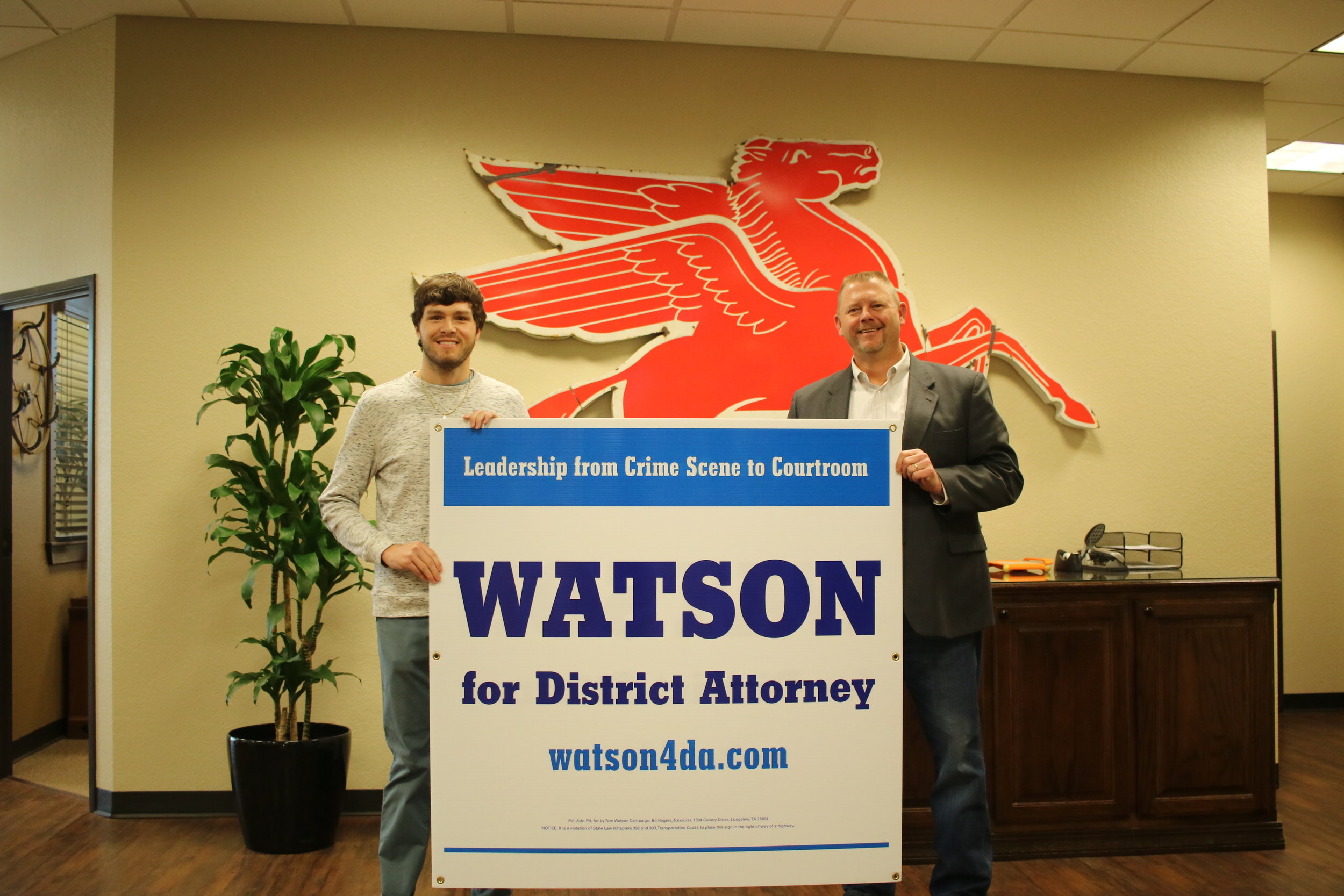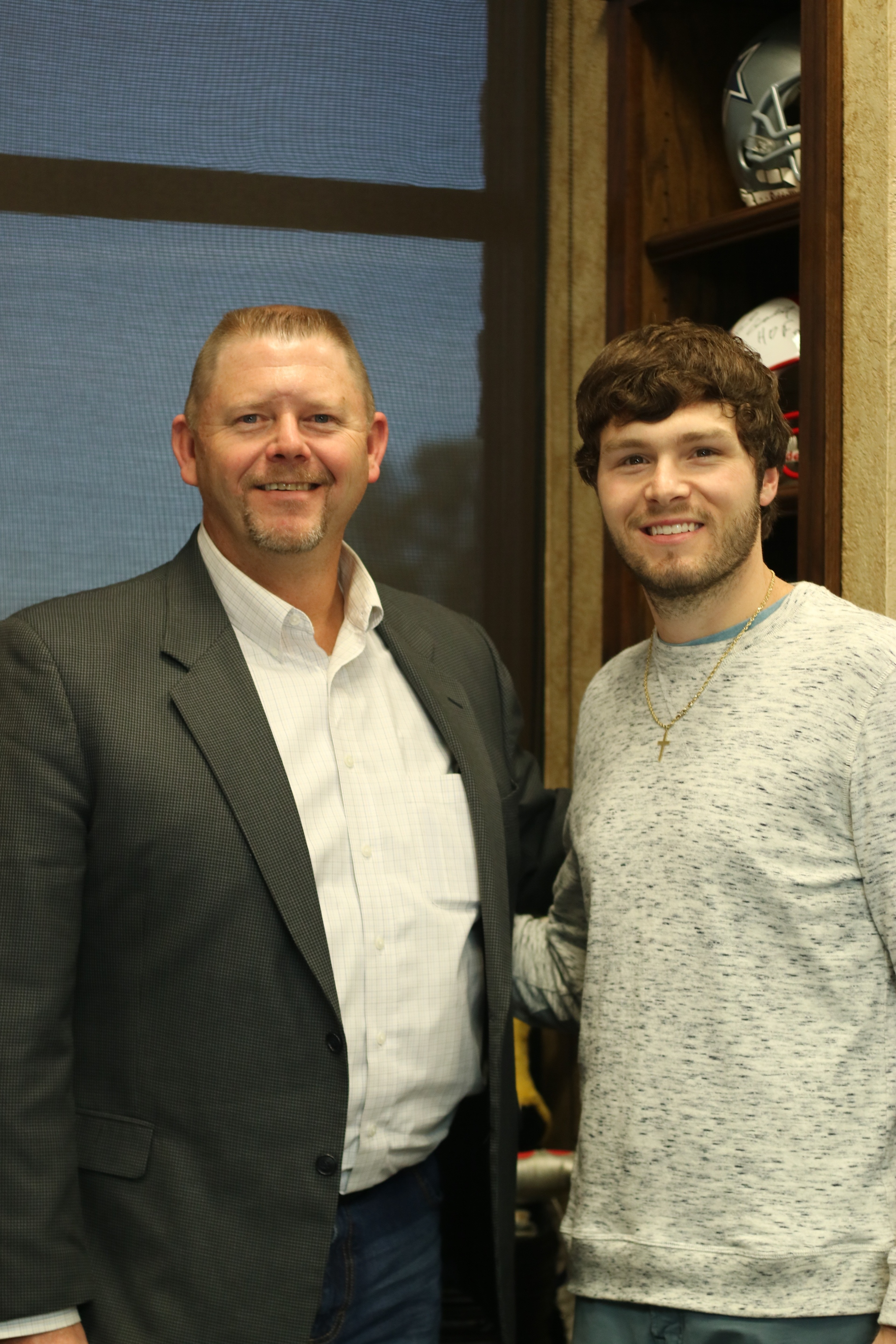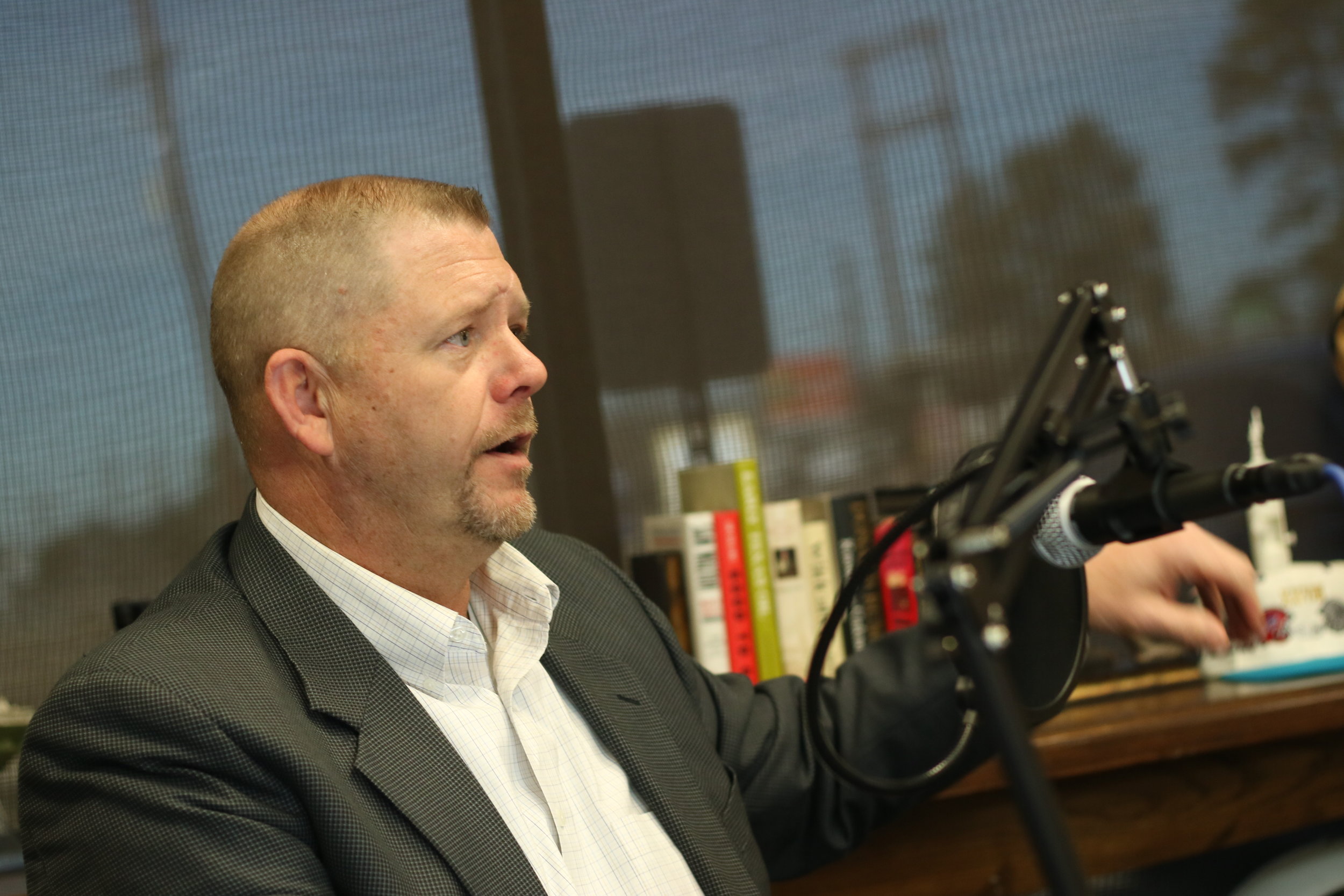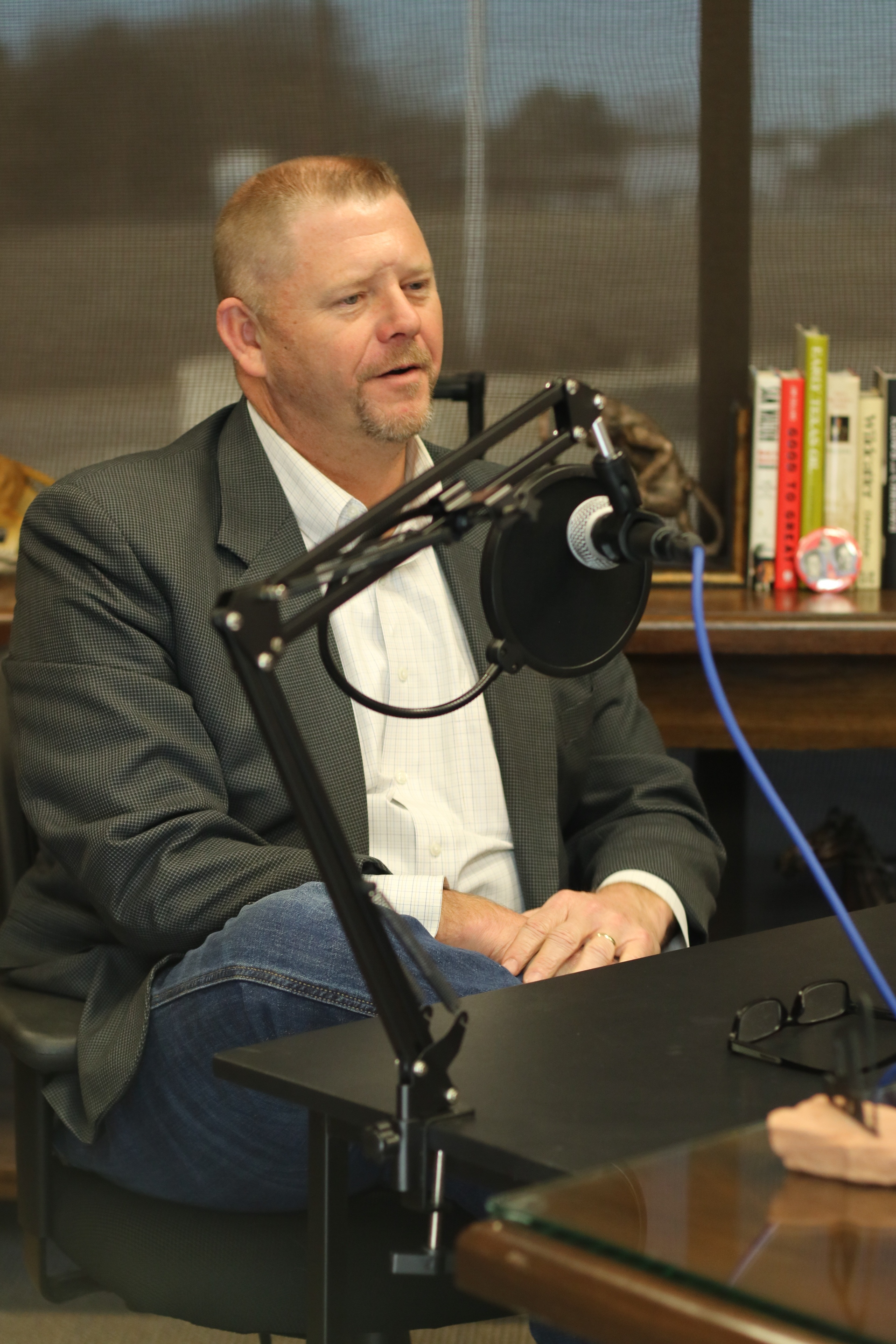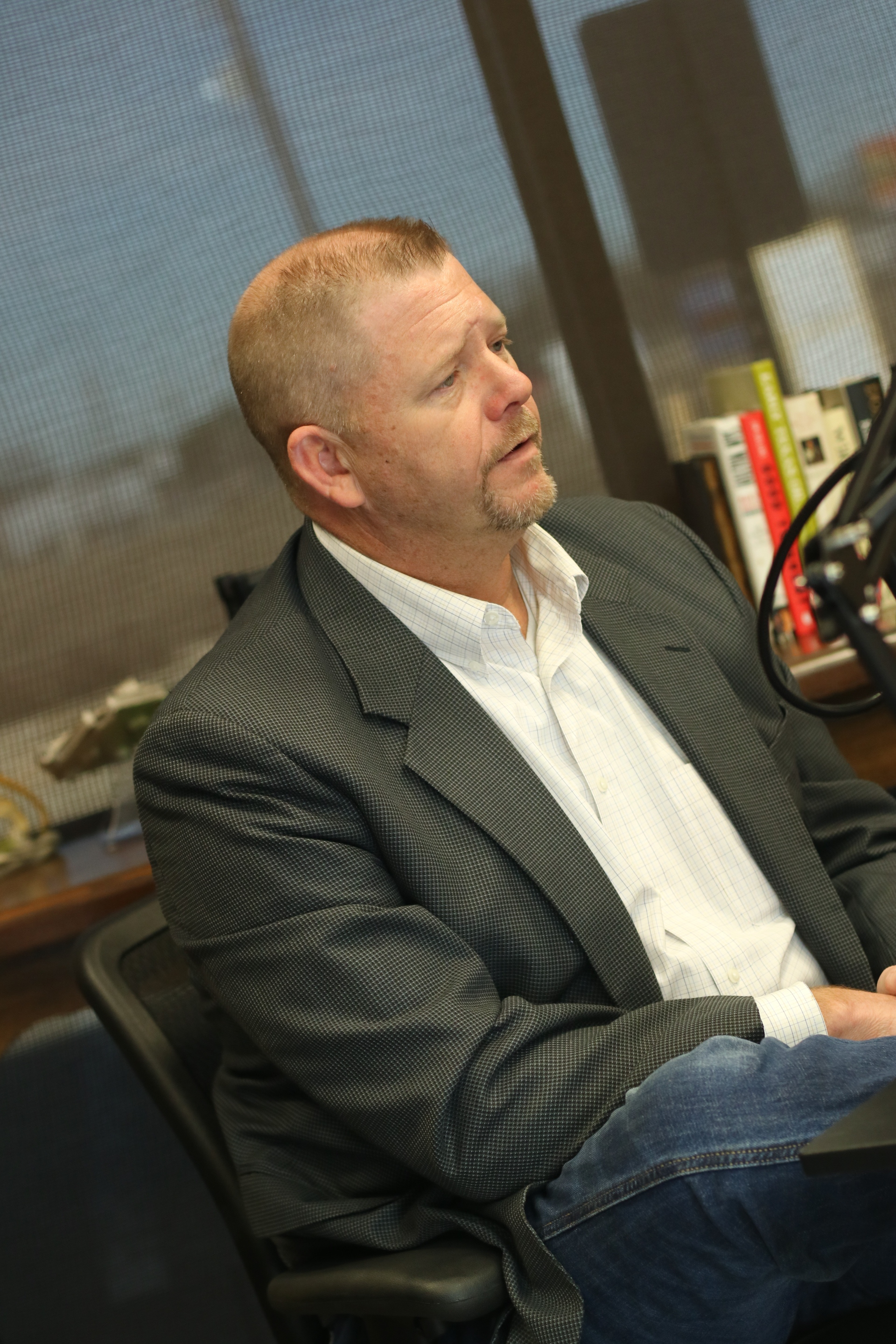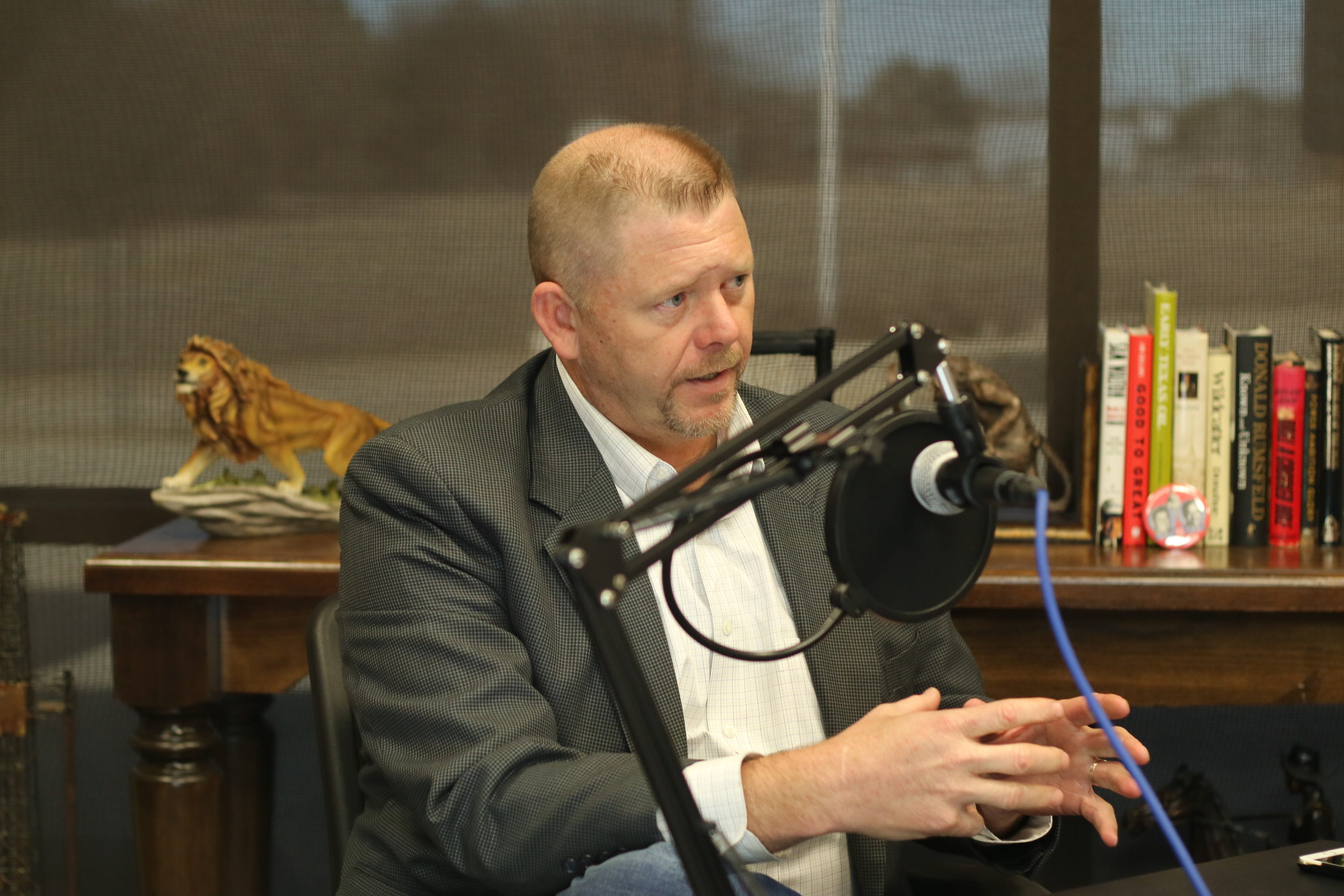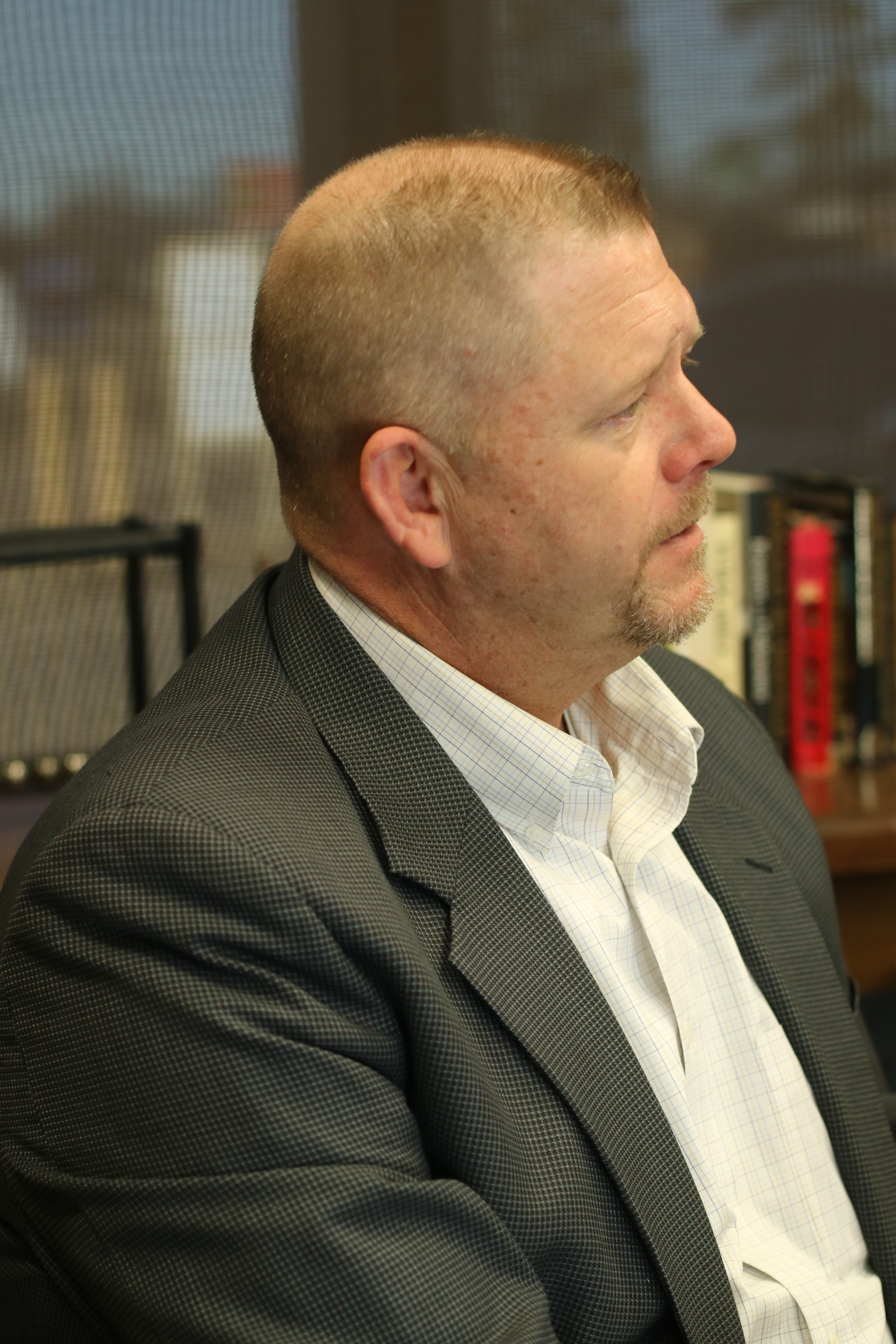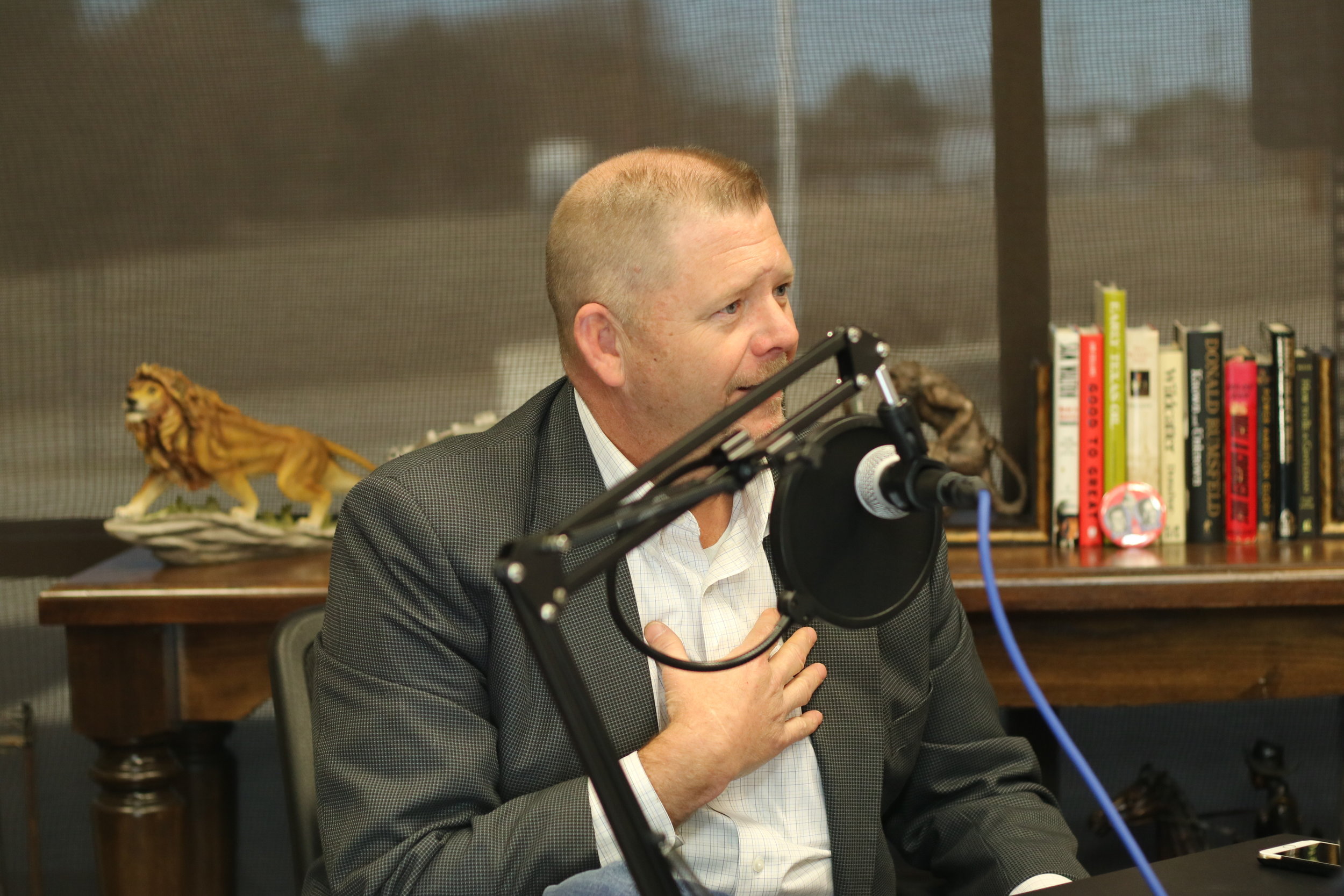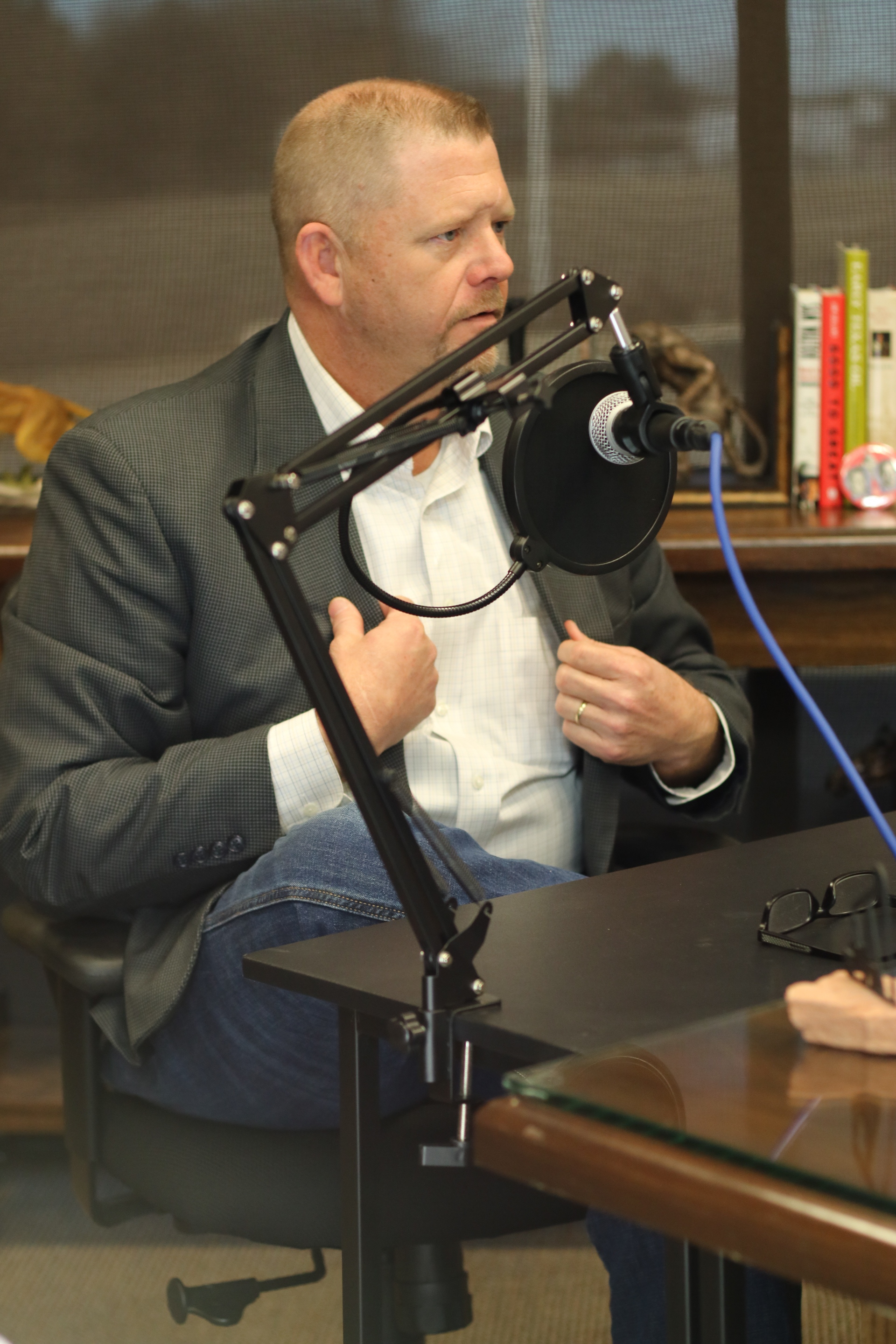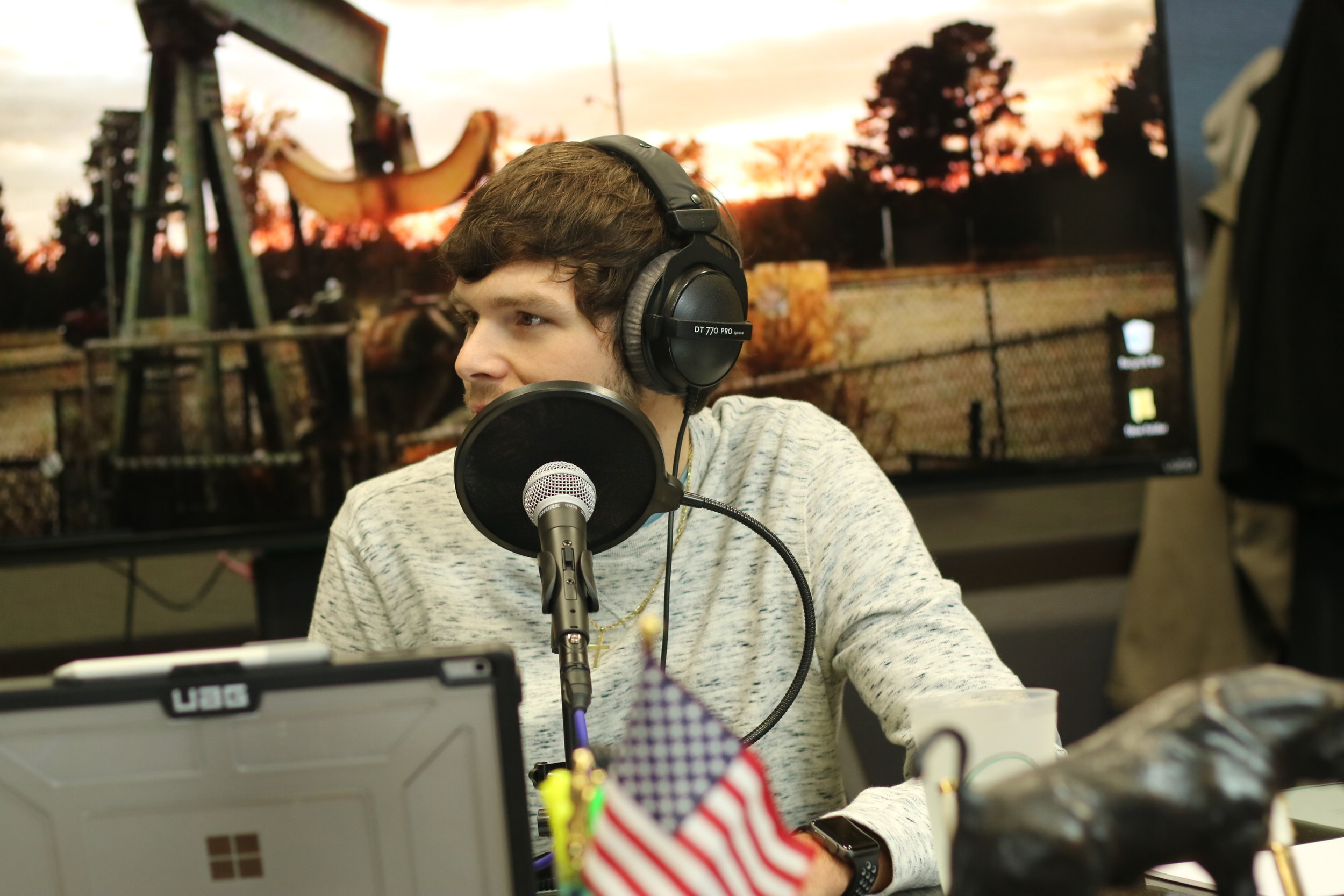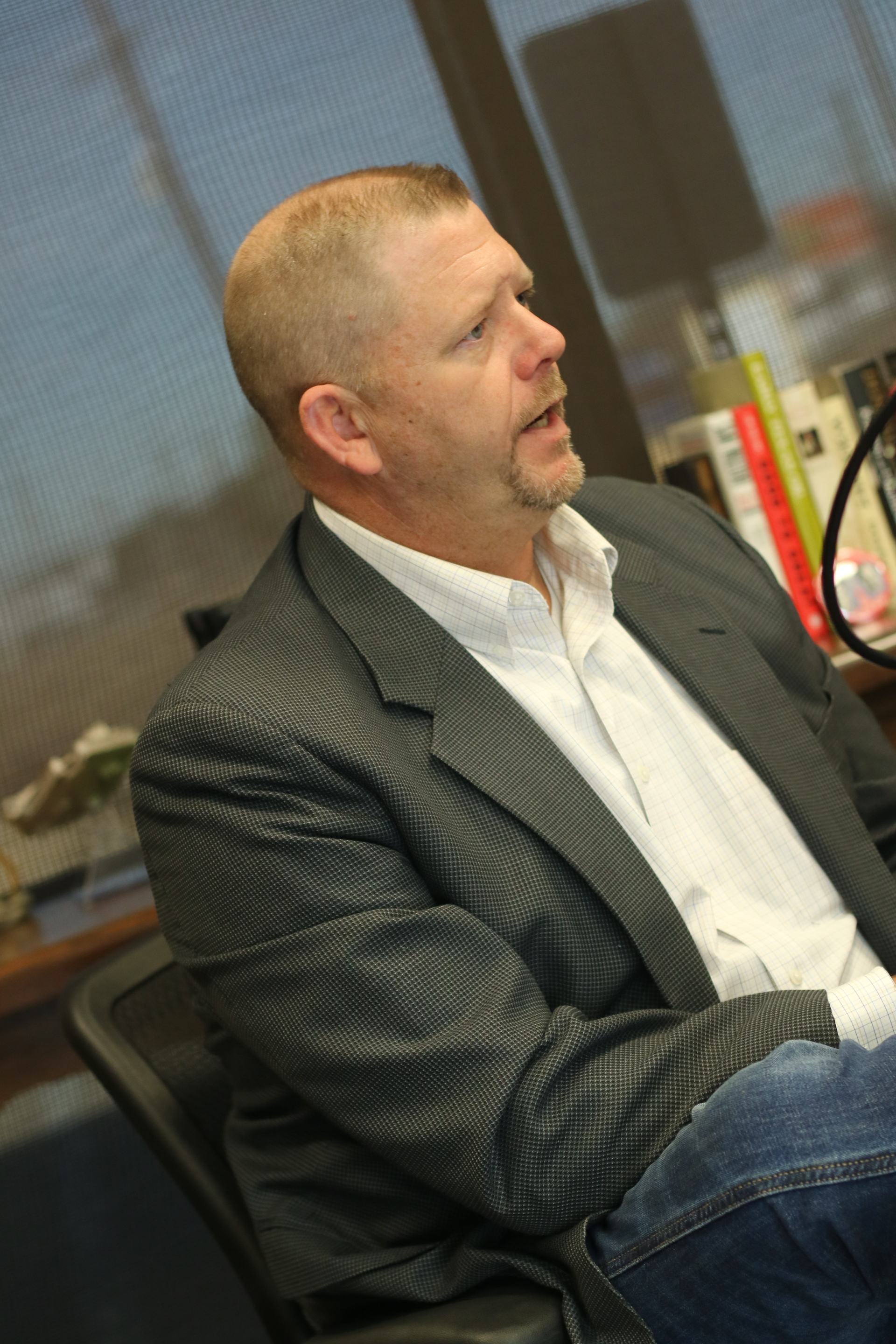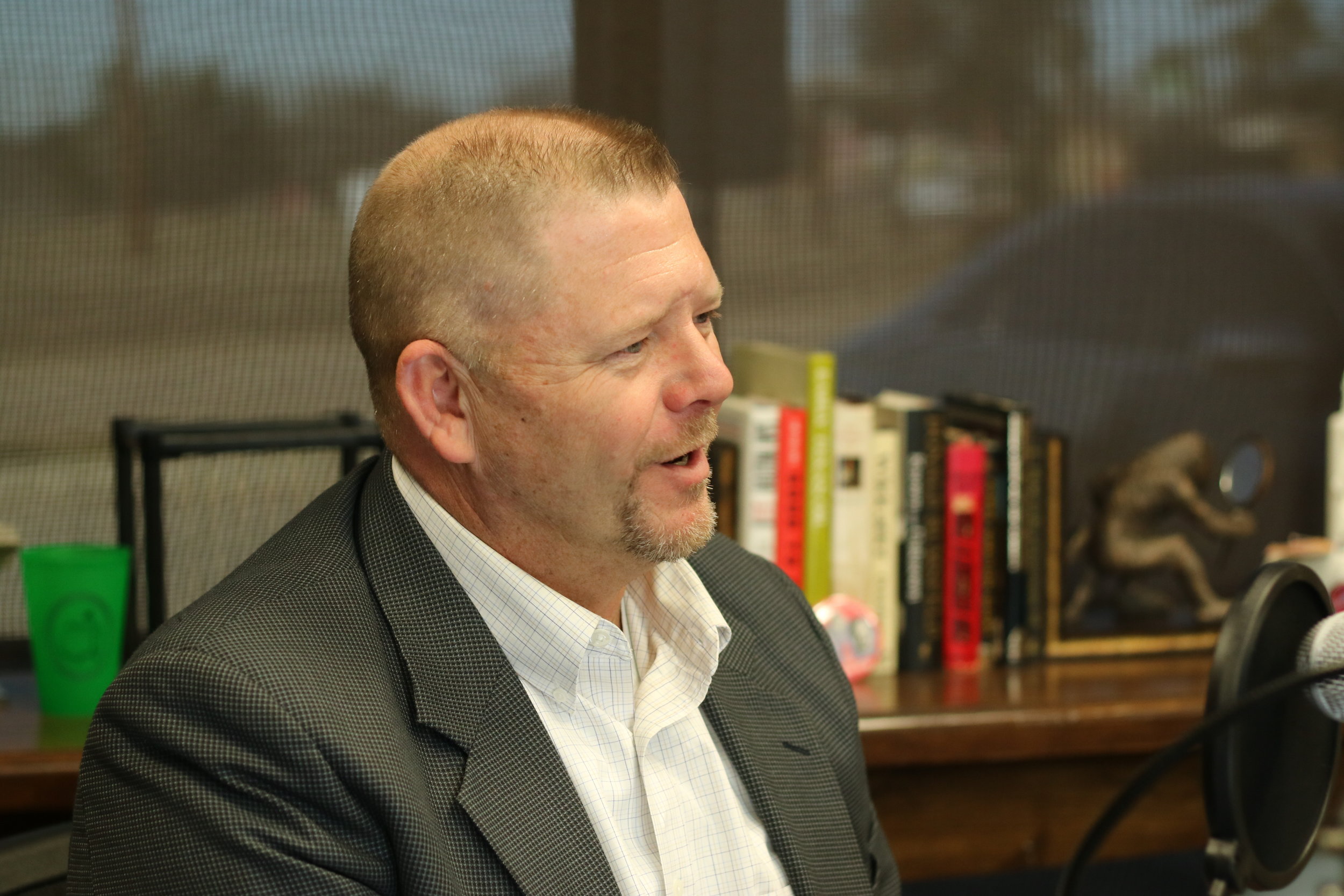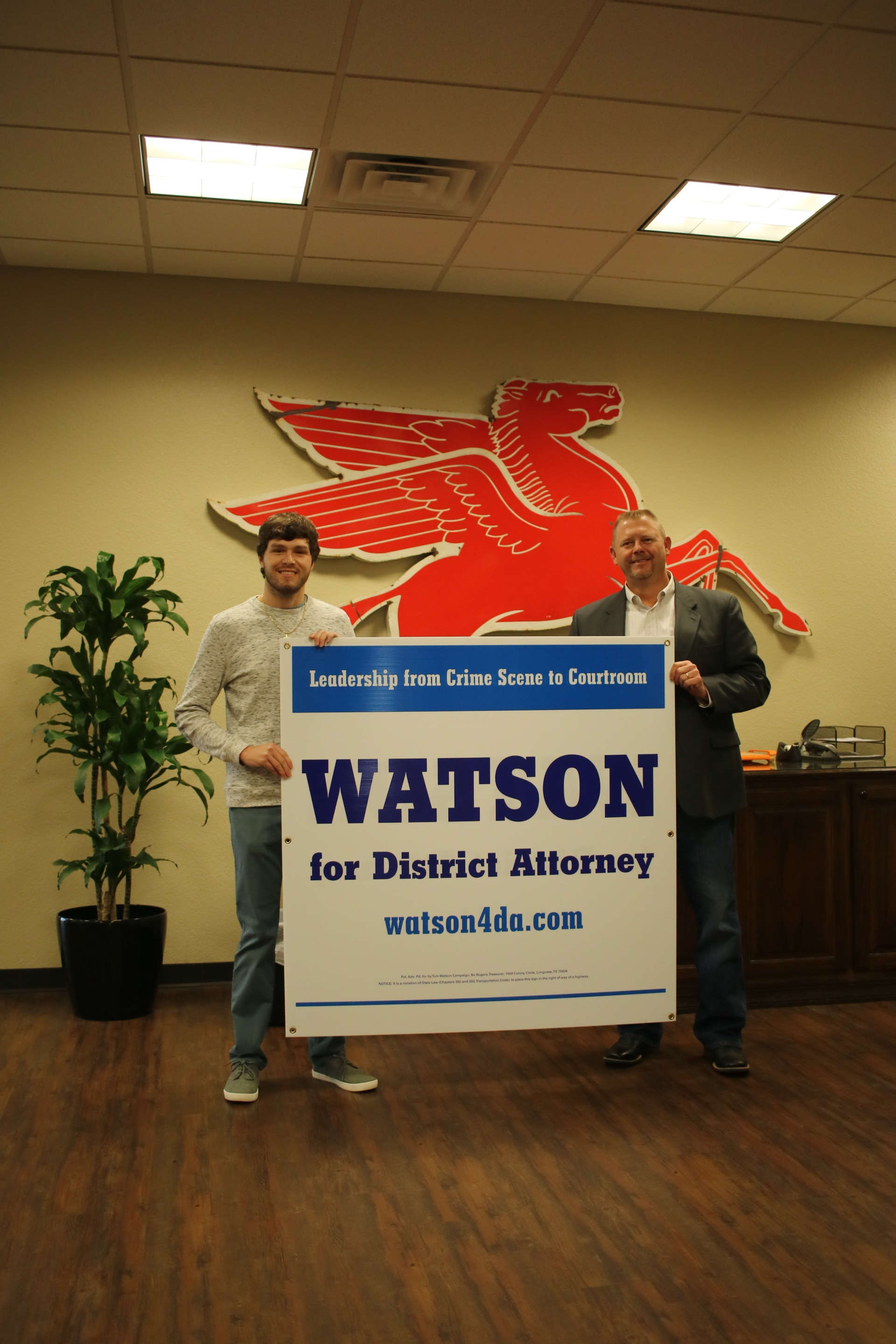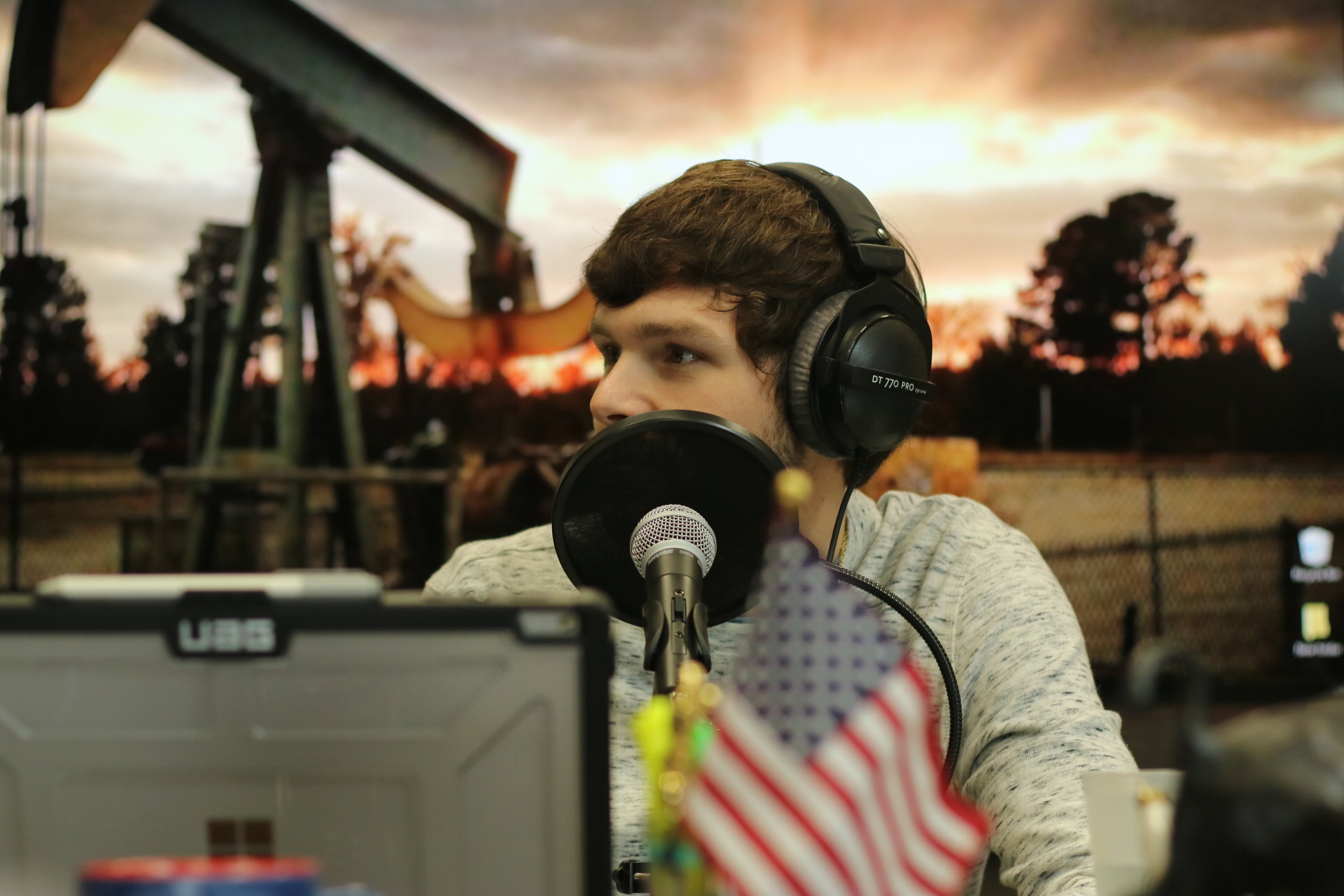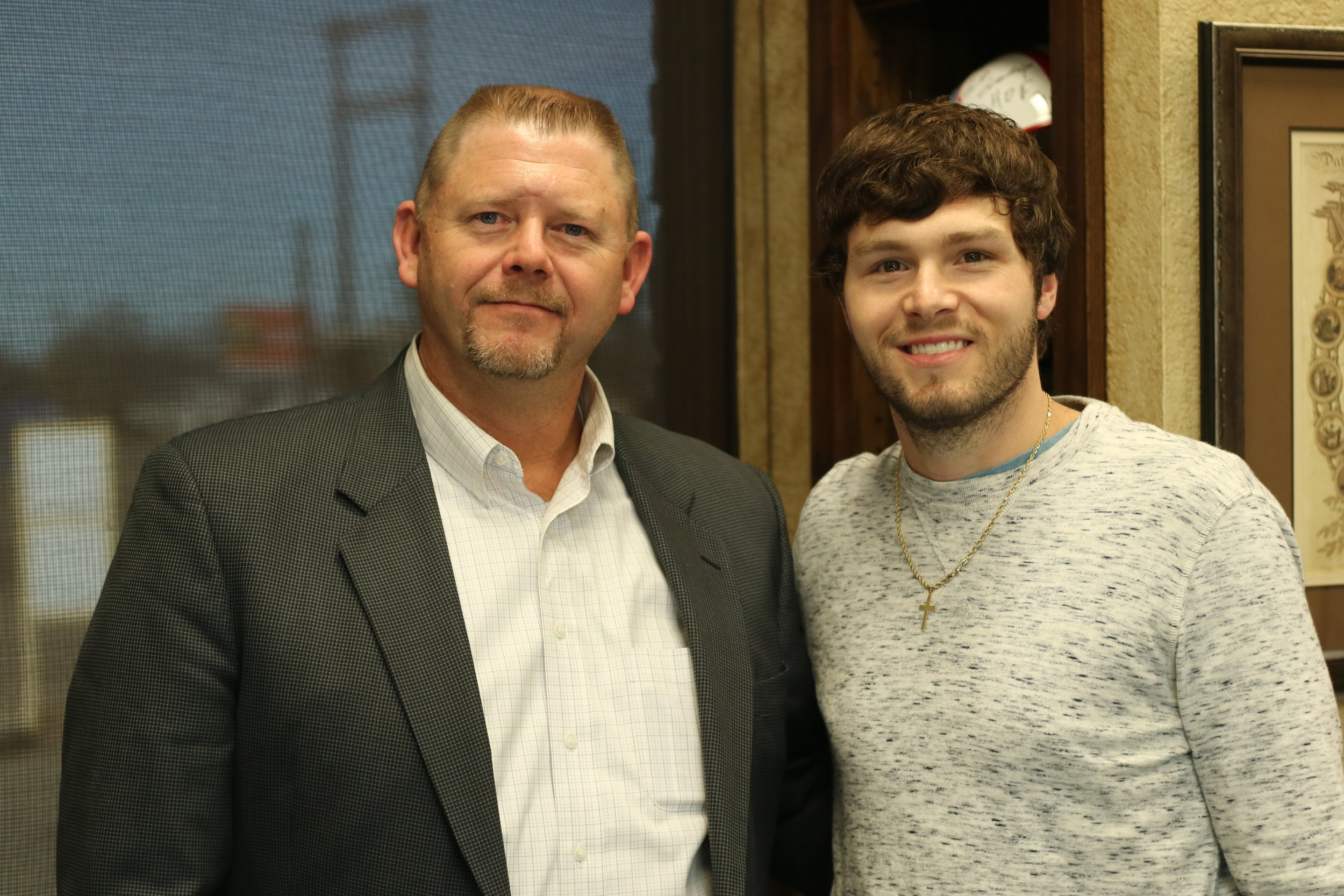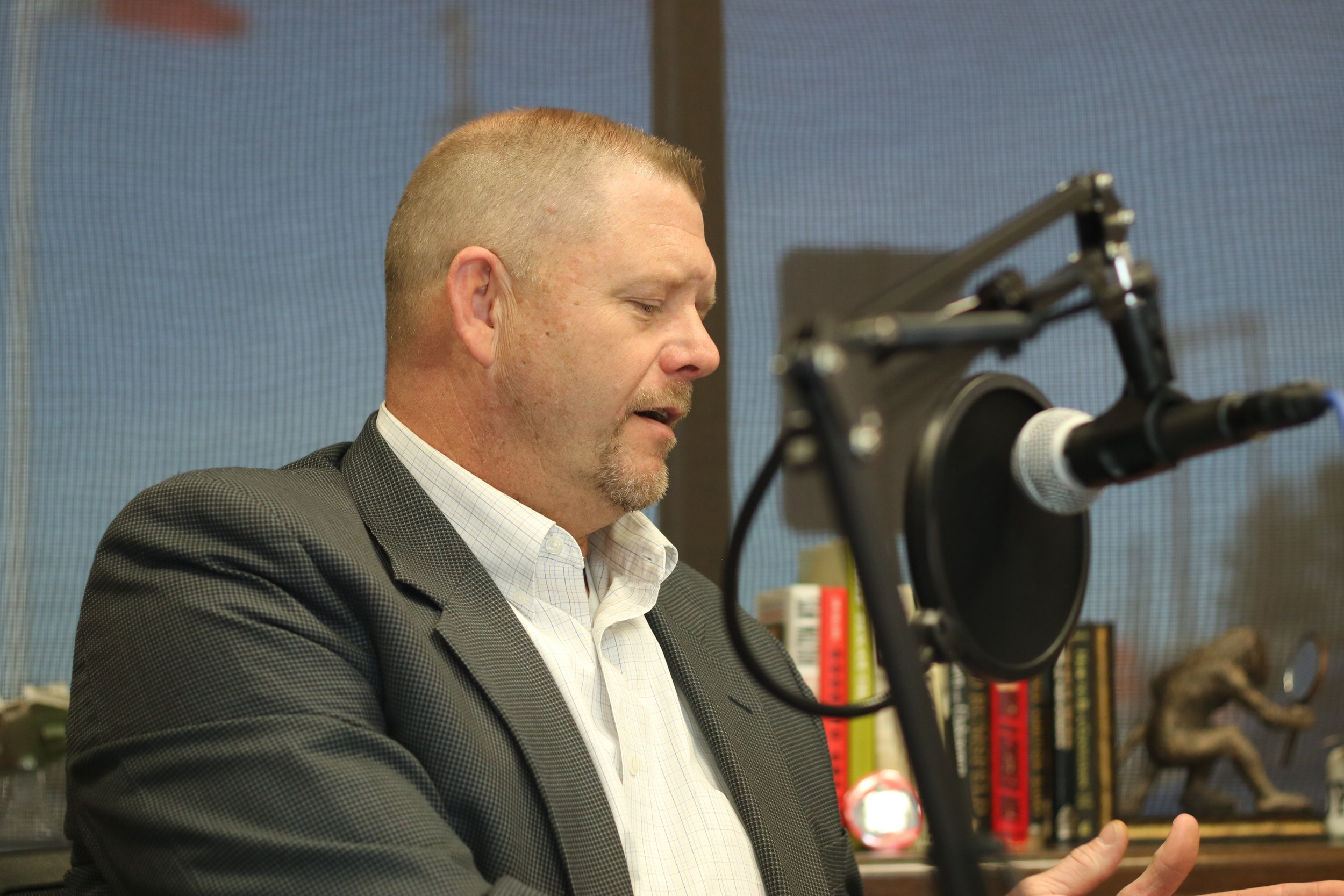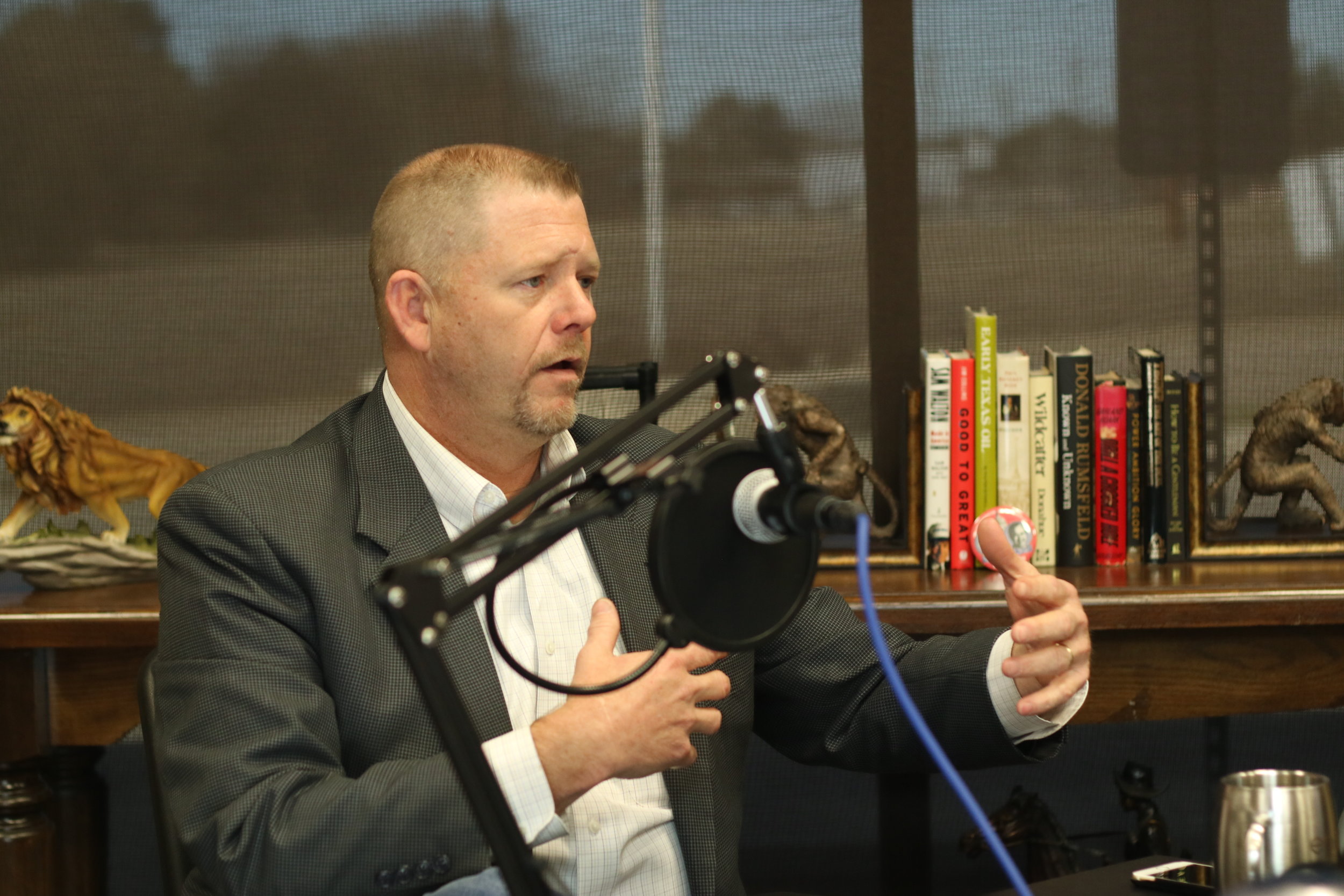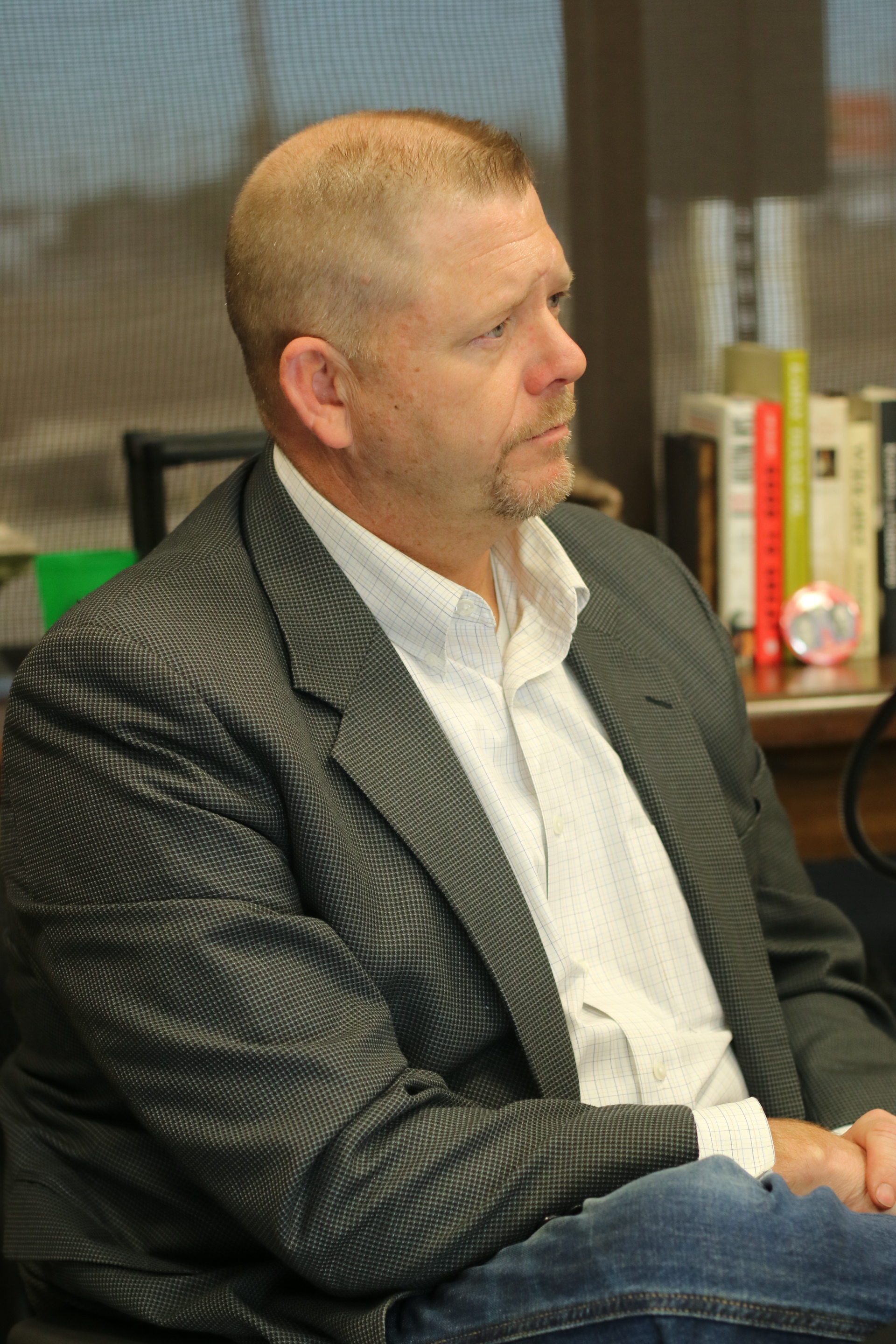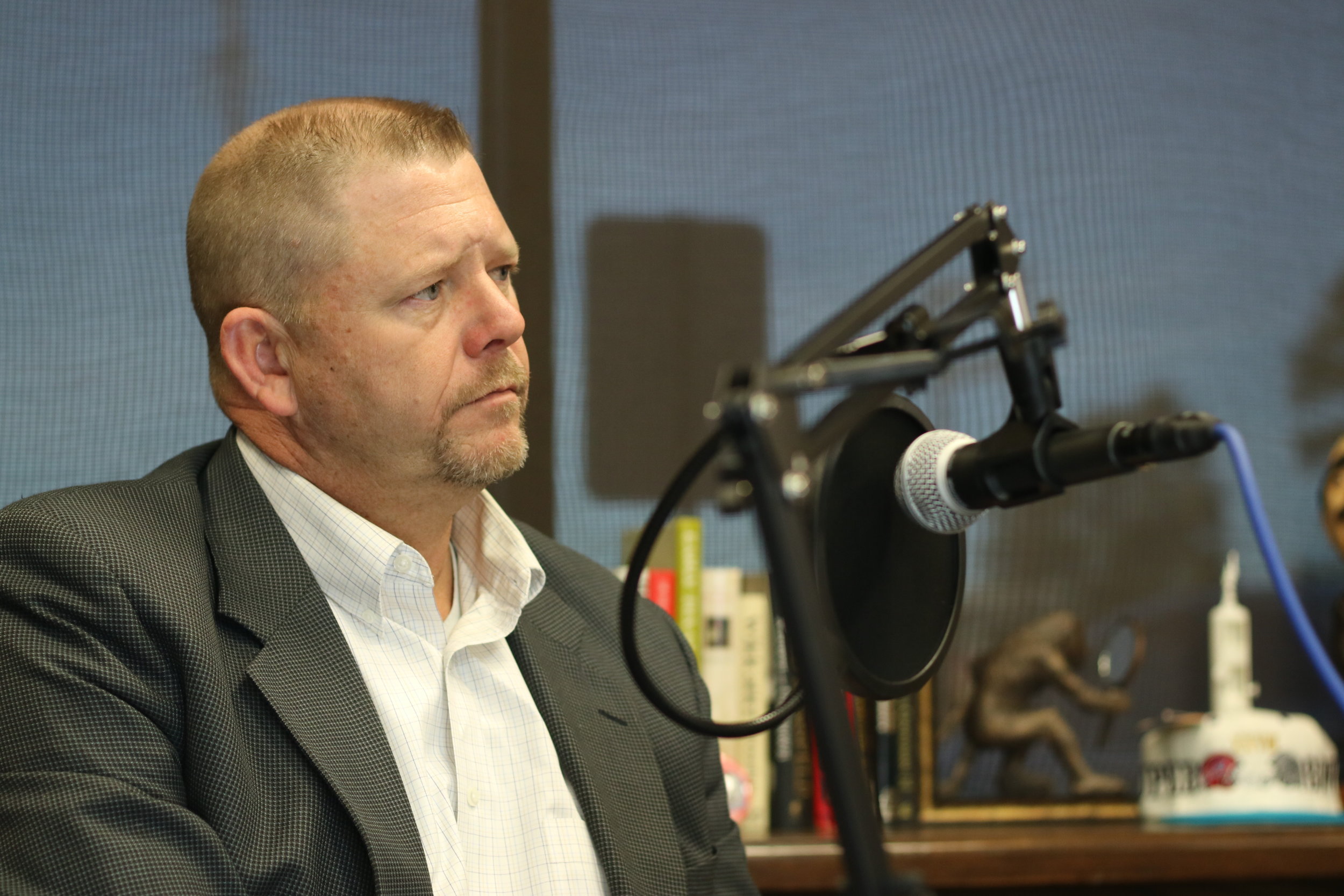Show Episode Transcript
Manufacturing Leadership
Small Wins with Tom Watson, Republican Candidate for Gregg County DA
Intro:Welcome to manufacturing leadership, a podcast for young professionals in and out of the oil and gas industry. And now here's your host, Energy WeldFab's Michael Clements.
Michael C.: Hello friends, welcome to manufacturing leadership, an oil and gas podcast, this is your host Michael Clements. Coming to you today I got good friend and Republican candidate for the office of Gregg County District Attorney Tom Watson, how you doing today Tom?
Tom Watson: I'm doing great Michael; I appreciate you inviting me to be on the show.
Michael C.: You know since you got started on your campaign trail last year, and we had an early discussion this was something that not necessarily the podcast, but something I was very excited about.
Just knowing you from the golf course and friendship and also being on the Meadowbrook classic board together, whenever we discussed it last year you came by, been excited for you ever since. So whenever we got the podcast going it only seemed fitting that we have you on, and give you an opportunity to tell us more about yourself.
Tom Watson: Like I said I do appreciate you inviting me on the show, and you and your father you all have been great friends to us over the years, and really enjoyed getting to know you better.
Like you said we did meet pretty much playing golf or at the Meadow Brook classic committee meetings, and our relationship has grown since then, and I really do consider you a good friend.
Michael C.: I appreciate that Tom; we are very excited to have you here. And what we're looking at is Tom's running for District Attorney here in Gregg County, early voting is going to start on February the 20th with an election day, big day March the sixth.
Tom Watson: That's correct.
Michael C.: And also something new here in Gregg County, if you live within the county you're going to be able to vote at any polling location. We're also going to have that polling location list in our website, in our show notes. So Tom you think that's going to play a factor in this election?
Tom Watson: I think it creates a better convenience for the voters; you're not restricted to the area where you have to go and vote. So if you're in Kilgore, but you live in Watto for Gladewater you could cast your vote there in Kilgore if you have the time.
So I think it's a convenience thing for the voters, and it helps them to not have to worry about where they have to go to vote, they can go to any of the polling locations.
Michael C.: And I think it's a wonderful use of technology and if your county is not doing it, go tell them hey we want to be able to vote anywhere in this county.
It is wonderful though because if you live in Kilgore, you work in Longview you may not have that opportunity to get over to the polling location, and not everybody does vote early, I do try to myself. You can also check Tom out on his website Watson4da.com those will actually be in the show notes as well if you'd like to go check out his website, and he's also on Facebook.
Tom Watson: Yes, its Tom B. Watson 4DA on Facebook I have that page, currently we have over a thousand followers and it's growing daily. So if you haven't went to the Facebook website or the Facebook page and joined and followed it, I'd encourage you to do so because that's where we send out quite a bit of information, upcoming events and then also just different posts and things of that nature regarding the issues in this race.
Michael C.: Well Tommy you've went live a couple of times right?
Tom Watson: Well I've went live once and that was actually on a block walk, we were over in the pine tree area. Block walking is great way to meet people, we had a lot of fun and you get to go up and talk to people and the voters, you know a lot of the people are just not informed about the issues.
And so whenever you get to meet with them face to face, they get to ask you questions and you can inform them on the issues and what your position is on those issues, and it really creates a learning environment for the voters. So the block walking is very vital in our campaign, and I expect to go live more on those block walks, and as well as you know other opportunities.
Michael C.: Your big stance on your campaign has to do with prosecuting criminals, is that correct?
Tom Watson: Well yes, the district attorney's office they are charged with prosecuting all the criminal cases that are filed in Gregg County.
Currently the district attorney he has a staff of about 33 people, and not all of those are prosecutors, but there's certain prosecutors assigned to each court and you have a misdemeanor division and then a felony division, their job is to prosecute the criminal cases that are presented to them by our law enforcement agency.
Michael C.: How is that job being done right now?
Tom Watson: Well the incumbent, I've known the incumbent for many years and he's a great man. And I didn't come out to run against the incumbent based off of any vendetta or anything with regards to his character, because he has a good character and he's a godly man. But over the years we have seen a decline in the prosecution rates, and there are inmates that have been in jail for three to five years just waiting on a trial.
You know so that's things that the public aren't really aware about, these inmates that are in the county jail waiting for trial they're not serving a sentence. And you know if they were serving a sentence great that's where they need to be, but these are individuals that were arrested and charged with a crime, and then they will sit there two three four and even up to five years before they're ever taken down to trial.
And it costs the taxpayers thousands of dollars, it cost about thirty one dollars a day to house an inmate in the Great County Jail, and that's not including if they have medical conditions like if they have to go to the hospital, or if they have to have dental work done, that's all expense that is lumped on top of the thirty one dollars a day for living expenses.
You know I'm not a proponent of rushing to trial, and that's one of the misconceptions or pieces of information that the opponent is sending out that I want to rush to trial recklessly, and that's not the case at all. However I do think that the DA can better lead his people to be more diligent in getting those cases ready for trial in a timely fashion, and that's one of the big issues.
And the second big issue is that our law enforcement agencies are really frustrated with his leadership of that office, he's lost the confidence of quite a few of our administrators, not just talking about the rank and file officers but we're talking about the sheriff Maxie sir Liana who is publicly endorsed me, and chief Terry Roach here in white oak who has publicly endorsed me, chief Todd hunter and Kilgore.
We also have the professional organizations, the Longview Police Officers organization who voted unanimously to endorse me over the incumbent, and as well as the Kilgore Police Association they've also come out unanimously and voted to endorse my campaign for District Attorney.
Michael C.: Oh and I would say that as someone running for DA it's very important to have the support of the law enforcement.
Tom Watson: Oh absolutely, you know the District Attorney like we said they're responsible for prosecuting those criminal matters. And if there's a disconnect between our law enforcement and our DA, and then the whole county suffers because we see crime rates going up.
What really bothers me is I'm tired of opening up a newspaper and seeing somebody say that well Longview is one of the most violent cities to live in per capita in the nation, whenever we have great law enforcement agencies out there that are doing their best, but there's a disconnect and I believe that disconnect is in between our law enforcement agencies and the district attorney.
Michael C.: Well it sounds like one of the things that could be restored is that confidence in our law enforcement, if they know that criminals are being prosecuted and everything is going through the correct process.
Tom Watson: That's correct.
Michael C.: So I think that's a great base for the campaign, it definitely got me excited whenever we were discussing it, and it makes a lot of sense. And I'll tell you I want the person in there that does have the support of law enforcement; if anything else that's who I want in there.
Tom Watson: Yes, and I agree. You know that's one of the questions that I've been asking people when I'm out doing the block walks, is you know do you think it's important for the district attorney to have the support of our local law enforcement?
The obvious question that is absolutely yes. And whenever you have a challenger come out with the endorsements of a super majority of our law enforcement, well that should set off red flags to those people that are on the edge as to who to vote for.
Michael C.: Well let's get into a little bit of background about yourself Tom, you know your faith, family, hobbies, your current job what else do you have going on?
Tom Watson: Well currently I'm an attorney over in Kilgore, at the firm of Phillips, Watson and Gilchrist. We primarily handle civil litigation so we do a lot of civil trial work and Motion's practice, and we also have a title company so we did a lot of real estate work as well. We represent several oil and gas companies as well as several banks in the area, and you know we were pretty rounded law firm, we stay quite busy.
One of the things that I've had to really work with is juggling all of my responsibilities during this campaign, because you know trying to stay on top of my practice so I can keep the lights on.
But at the same time finding time to come out and meet folks and like talking with you today, or going block walking or putting up signs, it's a lot to handle. So you know you really have to form a team of volunteers that are equally as excited about getting out and working for you, and that's been a big challenge but it's coming together real well for me.
Michael C.: What was your first job?
Tom Watson: Well other than working for my father, you know my grandfather actually his name was Sonny Lee, and he lived in Kilgore and he was an entrepreneur, he owned Leeds butane service, and then my father worked for him as well and then they started a company called water Blasco, which was a high-pressure water cleaning service that we did a lot of contract work out of Texas Eastman and several of the refineries. Now so that was my first job was going up and cleaning the toilets and sweeping the floors.
Michael C.: Humble experience, sure.
Tom Watson: But you know whenever you're a teenager I mean it puts money in your pocket, so you can have spending money to go the movies or whatever. But my first real job was actually a Blue Bell ice cream, the one that they opened up over on Estes Parkway.
I guess I was probably 16 or 17 years old whenever that facility was built, and I actually laid the sod, the grass out there I actually was in the process of opening that store and then we worked there loading trucks and unloading ice cream, and they really do eat all they can and then sell the rest. We ate a lot of ice cream almost got sick of it, but that was the first job and I really enjoyed those days.
Michael C.: I'll tell you I love some Homestyle vanilla.
Tom Watson: Yes.
Michael C.: So when did you become a police officer?
Tom Watson: You know after high school I was kind of, like a lot of our teenagers that are leaving high school you know the first question that they're usually ask is what are you going to do for a living? Or you know they go meet with a counselor at the college, and the counselor ask them what your major going to be? Well that's a lot of pressure for eighteen year old kid because you're being asked a question that may form the rest of your life, and that's why you see a lot of younger students that they may change majors two or three times before they finally settle on something that really interests them and I was much the same way.
I was into architecture quite a bit in high school and mechanical drafting, and really loved doing that and I thought that I wanted to pursue that as a career. But you know eventually I kind of became bored with that you know, and so I did start out at Curry College in the drafting department, but I then switched gears and started looking at other avenues.
And a buddy of mine was actually on the police force there in Kilgore at the time, and he would always tell me stories about you know being a police officer and how exciting and fun it was, and how you really bond with your other officers you know and it's kind of like a big Brotherhood of people that you join up with, and you really create some really bonding relationships.
And he asked me to come in and ride with him a couple of times and I did and I really enjoyed it, I actually came over to Longview PD and rode a couple of times in Longview. Maxie Soriano was the assistant chief at Kilgore PD, and I've known Maxie ever since I was a young boy, he's family friends with my family. And of course you know I always looked up to Maxie and he was a great guy, so he spoke into me as well you know about pursuing the field of criminal justice for being a police officer.
So you know I really got interested in it and started looking into it, and so you know I changed my major from drafting design to criminal justice, and went through the criminal justice program there in Kilgore and I had you know Brian Roofing was one of my instructors, and Bill Edgar I mean those guys you know anybody in law enforcement in the area know those two guys, it was just so much fun and really learned a lot.
After I graduated from Kilgore college with the associate's degree in criminal justice, I was looking for a job you know and the police academy didn't start for a few months, so I had a timeframe there where I was kind of twiddling my thumbs needing to do something. So I went to work for the prison and over to being more units and I worked as a prison guard over there for a couple of years. During that time I also went to the police academy at night, so I was working full time and going to the police academy at night and on the weekends.
Once I became a licensed peace officer, I became a reserve officer with the city of Kilgore. The Reserve Program is you're unpaid, you're a volunteer, you're a certified peace officer but you're coming in volunteering your time whenever they need you and not getting paid for it, but you're actually developing experience and learning a lot of stuff whenever you go out and ride with the officers.
And so I reserved for Kilgore for quite a while, and I was there every weekend, I'd be out there Saturday or Friday and Saturday nights and anytime they needed me, I was there till finally you know they had an opening come up at Kilgore and Max he called me. And he said you want to go to work full-time and I said absolutely, so you know I jumped in and that was, I want to say 95 - 96 sometime in that timeframe.
Michael C.: Tom that's interesting, what was your next step after that?
Tom Watson: Well you know I started off in just the patrol division working deep nights, and that's usually where most rookies start off. And then of course I transferred to the day shift, and that was about the time my son came along and my wife was wanting me home during the evening.
So I went two days for a while, and ultimately I was promoted to Detective there with the Department. And we investigated every crime, you know the patrol officers they'll go out and take a report of a crime and then they'll turn it over to the investigators with CID and we would investigate those crimes and get them ready to go to prosecution, and we deliver them at some point in time to the DA's office.
And so I worked as a detective for about six years, and also during that time I was assigned as an agent to the East Texas Violent Crimes Task Force, it's an agency developed by the FBI out of the Tyler office. During that time you know I got to work hand in hand with many of the local agents of the FBI, as well as you know the DEA task force and also ATF, US Marshal Service and we would travel.
Anytime there was a major crime anywhere in the Northeast Texas area, if they called out the task force we would load up and go investigate crimes all over North East Texas and they were usually the higher profile crimes you know or the major crimes, where you know whether capital murder cases or big drug interdiction type investigations, we were out there investigating those cases as well.
I really got the opportunity to learn a lot from the FBI guys and the US Marshals and the ATF, DEA and it also gave me a lot of exposure to testify in many different courts. If we work the case up in Titus County, then we will be testifying up in Titus County If it went to trial, same way in Smith County or Gregg County or Harrison. So you know we worked all over, which really gave me an insight into you know a lot of courtroom testimony and working with many prosecutor.
And kind of got to a point where I was really wanting to go back to school and finish my four-year degree, I'd always promised myself and my wife that I would go back to school and get my four-year degree. And so I started taking some night courses, and working on my degree plan. I was getting my degree through UT Tyler, and they taught classes over in Tyler and then they also had night classes at the Longview Center.
And actually it's kind of a unique story, you know the very last class that I had to take, I just had to take a two-hour elective to finish up my degree plan, and so I found a criminal law class that they were teaching at the Longview center and it fit perfectly, it was a two-hour elective and I thought you know being a police officer and being around criminal justice, it would be a good course for me to take.
So I signed up for it, and the first night and it was being taught by an adjunct professor, I didn't know who the professor was going to be until I walked in the door and it was actually Judge David Brabham, the 188th district court judge here in Gregg County. So I was surprised to see him, he was surprised to see me, I testified in his court many times and I've been in front of him you know and talked with him a lot over the course of my law enforcement career, it was really a great class.
You know he taught it more from a lawyer's perspective, then you know just a class ring, he wouldn't just give you material and you go home and studied and you come back and regurgitate it, you know you actually had to think about it and you actually had to apply issues with law and the facts and things like that.
So it was a very interesting course, and finished that course and I actually made an A, and on the night of the final exam judge Brabham pulled me to the side and said hey Tom have you ever considered going to law school and at the time I really haven't given it much thought, kind of tinkered with it or you know it would pop in my head every now and then but I hadn't really given it much thought.
But you know you and I were talking a few months ago and we discussed how we believed that certain people are placed in your life for a purpose, they may not even know that God put them in that position to speak into somebody's life, but I believe that that was a god thing. I think that Judge Brabham mentioned that to me, pulled me to the side privately and mention that to me for a reason, and that was God planting a seed in me; it's something that really started growing within me to seek advice and counsel on going to law school.
So that's kind of how I transitioned out of law enforcement, and then started seeking for my degree and my juris doctorate. Went and took the LSAT exam which is the law school entrance exam and did well on it, I was above the median average across the state of Texas, and then I started sending out my applications to different law school.
If you look at it, here I am now I'm 33 or 34 years old after having a career in law enforcement, it's kind of uncommon for people of that age to actually pursue and go back to law school, it happens but most of the young one else is what they call or straight out of college you know they go to high school, get their four-year degree and then they go straight to law school, you know it was a little bit of a different scenario for me. So I sent out my applications and I got accepted to Texas Westland, which I believe you went to Texas Westland.
Michael C.: Yes sir.
Tom Watson: And then you know I was waiting on a spot at another University, and so I was kind of juggling which way to go. And I was actually going over to the district attorney's office one day to talk to how Alfonzo Charles about a case that we had together, and bill Jennings was our district attorney at the time.
And Bill saw me walk past his door, he told me to come in so I came in shut the door, and Bill said you know I hear you're planning on going to law school and I said sure, and he asked me if I had applied to Texas Tech, I said no sir I have not and he said why not? I said welcome that's out in the desert. You know I didn't know anybody out there, it's out in west Texas, you know eight hours away and I just really hadn't considered going out to Texas Tech.
And he said well hang on a second, so he picks up the phone and calls the Dean of the law school and he talked to the Dean and he hangs up the phone, and says Tom you're accepted in the Texas Tech School of Law if you want to go, needed to say I went to Texas Tech. And finished up my law degree there, and took the bar exam, actually took the bar exam early. I took the bar exam in February before I graduated that May, so I had passed the bar exam so whenever I graduated I was a licensed attorney, and so it was pretty neat to do it that way.
Michael C.: Yes. One of the topics you know of course on our show is leadership, and it sounds like you've came across some tremendous leaders in your lifetime. I think another testament to even your leadership ability Tom is the fact that you said okay, I don't care if I'm not just graduating college, I need to go to law school and you followed that path.
I think for leadership a lot of times you think well maybe I'm too old for this, or maybe I'm too young for this, maybe you know those things that doubt linger on everybody. Whether you're a leader, whether you're not a leader, no matter what position you're in those tops of doubts can linger in their lines. And I think that's a true testament though to a person's leadership ability, is if they can overcome those doubts and they can say you know what I know that there's a path for my life, I know that there's a direction I'm supposed to be going right now and you stay obedient to that course.
Tom Watson: Yes, that's correct. I don't know who said this but I remember hearing it, and they said if you're not growing you're dying, you know that's something that has always been a part of me, is that you know I never want to become stagnant, I never wanted to just stay put in one position forever. Not that there's anything wrong with that, but it's just part of my DNA, my makeup is you know I'm always looking for the next step, and I'm always seeking counsel and seeking God on what that next step is.
And I'm a strong believer you know that as well as you are, and we've had those discussions as well and you know I'm going to seek God's will for my life. And if I step on toes so be it, one of my favorite verses is found in Colossians 3 and it says whatever you do whether in word or deed do it mightily is unto the Lord, and not as unto men. I believe that I'm not here working to please mankind, I believe I'm here working to please God, and that's kind of the motto I live by, that's something that is really strong in my heart.
And so you know whenever I decided to take these steps, whether it was going to the police academy or you know going back to school or going to law school or now running for the office of District Attorney, it's not something that I've just you know pulled out thin air, it's something that I've committed much time to, committed a lot of Prayer to, I've sought godly counsel from people that have mentored me and spoke into my life over the years. All of those things I've done before I made that step, to make sure that I was seeking the will of God not the will of Tom, if that make sense.
Michael C.: Oh that can definitely be a leadership challenge as well is who are we serving, and so I think that that's a tremendous example for all of us to live by Tom, and it does speak Testaments to your ability to be a leader in our community. You know one of the topics that we wanted to discuss as well was small wins are very important for leaders, most the time as leaders we have these great visions, we have these things that we want to accomplish, but at the same time it requires us to still get up every day and be motivated for that goal, as well as motivating others.
Thought a tremendous conversation we could have was with small wins and how important it is, I know in manufacturing and working with different departments, you know it's every single day you got to be taking small steps that you know is going to lead to something bigger. And sometimes if you start talking about the bigger the bigger the goal at hand, sometimes it can be intimidating to others, sometimes you lose your focus because you're so focused on what could happen versus what you got to do tomorrow.
Tom Watson: That's correct.
Michael C.: As far as the small wins go, when I think of a politician and small wins it's probably your conversations going in with somebody, can I put a sign up? You know not just can I get your vote, but there are a lot of other things. Can you give us a few examples and maybe some small wins that you've had?
Tom Watson: With regards to the campaign yes, it started off very small, it started off with my wife and I. We were sitting around the dinner table and just talking, and like you mentioned we have this vision of where we want to be, but we have to figure out how to get there. We can't put that goal up on the board and just expect for it to fall into our laps, without us putting forth the effort to take those steps to get there. Like I said my wife and I we started out together down this journey, my children have been very instrumental in helping me as well.
And you know basically we just kind of took it a step at a time, and again talking to folks that have been there. For instance Sheriff Maxie's Soriano we've always had a great relationship, so I mean I went sought counsel from Maxie and he has really assisted me and pointed me in the right direction. Judge Tim Bryan another example, you know I went and talked to him and there are others you know. And so I really had to lay the groundwork for how I wanted to get from point A to point B, and you can only get from point A to point B by making those small steps and having those small wins like you're saying.
And so the first small wind was to develop a core group of volunteers, because I try to do it all by myself or my wife and I try to do all this just the two of us, we're going to run ourselves ragged, we're going to be chasing our own tails and we're never going to get to that next step. So first call of action was to develop a group of volunteer that had the same vision, or that shared the same vision, that understood the issues and so that was a small win.
You know the small win of me coming and talking to you and your father a while back, during that conversation you put me in touch with people you thought would be great volunteers that will get on board, and I've reached out to those folks and they have, now they're on board and they're out there campaigning on my behalf. So those are just little wins that add up, and as you start having these little wins it starts to snowball.
There's just a lot of things that I've seen come to pass here within the last three to four weeks that are really a testament to all the work that we did in the very beginning, and so you know without doing those beginning baby steps you're never going to get to that big, to see those bigger victories. You know I have seen a lot of small victories, a lot of volunteers, a lot of people that have come on board and helped me with certain things.
You know like addressing envelopes for instance, or knocking on doors you know putting door hangers on people's doorknobs and going out and delivering the signs, you know I mean the first order of signs we got I think the first order was 500 signs, because that's what our budget allowed I think. And you know to get it all 500 of those signs out is a different story, well we did that in about two weeks, and now we order more signs and now we've got another order coming in next week, and it's just a matter of getting those small steps taken care of to reach that go that we're looking for.
Michael C.: The small wins, I love that the snowball effect. And a lot of times you don't really even know where this is going to go, you just know every day you got to put one foot in front of the other and continue going down the path, and it's amazing when a plan comes together.
Tom Watson: You know another small win, or I mean it is a win but it's really a big win, and I think that came whenever I went and sit down with the Longview Police Officers Association. I contacted those guys, you know I've never worked for Longview PD, I know several of those guys you know and have worked around them, but I never worked for Longview PD. And I contacted the Longview Police Officers Association and asked them if I could come in and meet with them, and they agreed to let me do so.
I came in and I told them what my plans were and they asked me question after comment we were in there for a good hour or more, and I just poured my heart out on the table. You know I just let it all out there and let them hear my heart, and my passion for this, and I asked them for their endorsement. And you know I thought it was a long shot, because you would think that the Police Officers Association or Maxie Soriano or Terry Roche, I mean you ask them to come stick their neck out on behalf of the Challenger against the incumbent, you know I didn't really expect to get that win.
And they told me, they'd say well you know Tom we're going to offer the incumbent the same opportunity to come in and talk to us as we gave you, and then we'll discuss it, we're going to pull all of our association members, we're going to talk to all of them and then we're going to make a decision if we're going to endorse anybody at all. Months went by two or three months they did meet with the incumbent, they did do all the their due diligence and one day I receive a call that they unanimously voted to endorse my campaign, that was a small step I took going to meet with them.
Michael C.: Small step, massive win.
Tom Watson: Small step massive win, it's very unprecedented that they will come out and do this in this type of race.
Michael C.: I'm guessing that that small win or massive win that you had has led to many other small wins out in the community when you're block walking, when you're talking with others, that has got to be something exceptional that you're able to share.
Tom Watson: One of the major questions I ask people when I knock on their door is, do you feel that it's important for the district attorney to have the support of local law enforcement?
Michael C.: Absolutely.
Tom Watson: There's no question, and whenever they hear that, that helps them make an informed decision on who the best candidate is.
Michael C.: So Tom with the small wins and all of these things, I guess it's really got to help that confidence with knowing your place and knowing that right now you are leading a lot of people, you want to be in a position of leadership. So you know I'd like to dive into talking a little bit about just your opinion and your views on leadership.
Tom Watson: Okay.
Michael C.: This show we really are appealing to people out in the community that are in different lines of work, you don't necessarily have to be a manager, you don't necessarily have to be an executive, you can be someone who is at your house, who works by yourself remotely, you can still be a leader.
And I think that's important is that you don't necessarily have to have a whole team of people behind you to be a good leader to have leadership traits, so I think that the path that you've went on obviously. And if you're not from the Gregg County area and you're listening, some of these names that have been dropped in here today I mean these are some heavy hitters in in your line of work, but also just in our community here.
And so you've been influenced by some of the best leaders we have, Tom just being around you I definitely get the sense that you have that leadership trait that we're looking for. So you know as being a leader how do you stay focus between work, politics and making time for your family, how have you done it?
Tom Watson: Well yes it's like I said earlier, I mean that's kind of, you've seen the picture of the guy juggling the balls and trying to keep them all in the air, and you know that's what I've been dealing with over the last few months. But again you know I think that the biggest aspect of my ability to handle all this has been my faith, and the support of my family, and of my church, and as well as you know just receiving those messages from people that you've never met.
You know right before we went on a podcast here today I received a private message from somebody I never met, you know they were just offering their support and said they're praying for me, and it's things like that that keep you motivated to stay in the fight. Because I could very easily throw up my hands and say you know this is just too overwhelming, I just need to concentrate on my family and my work, but that's not what I've been called to do.
Just by having that motivation from other people and the support of all my friends and family, it's made me more energized to get up in the morning, and put on my boots, and get out there and go back to work. Just this morning you know like I told you earlier, you know I started at 5:30 this morning, you know got up and got ready to go and I was out the door about 6:00-6:15 to meet a group of guys over in Longview, and have coffee and just talk.
And from there I had another meeting over in Kilgore, and so after that I met another guy here in Watteau before I came over here to talk with you. And it's just a matter of staying focused, and it's a lot about time management. You know especially in the legal field we're all about you know time management, because you have to stay on track and you have to also be able to make sure that your volunteers are on track.
You know every night we'll send out messages to the volunteers okay this is the schedule for tomorrow, you know you take care of this and please take care of this, and so we assign those tasks to people so that they all know what they need to do each day. And at the same time I've got a great staff at my office too, my partners there at the law firm were really behind me, they're taking up the slack for me which I can never repay them for that, but they're doing that and my staff really works with my scheduling and my calendaring, so that I can manage my law practice as well as my campaign at the same time.
But then in the evening you know whenever it's time to go home, that's the time you know where my wife and I sit down and have our quiet time. We used to call it couch time whenever the kids were little, I would get home from work and of course the kids are running and you know they want daddy's attention and that's great. But we always set aside what we call couch time, for just mom and dad to sit down and talk, and so that helps as well to balance that relationship.
So you know something that was said to me about leadership, and I think you know who said it was, being a good leader is not having people work for you, is having people to work with you, that was your father that said that by the way a while back. He said you know I don't want you to work for me, you don't work for me, and you work with me. And that's what I have right now, is I don't have a group of volunteers working for Tom Watson we're there together, it's all about leading from the front and not from the rear okay.
You've seen the movies where the two armies are facing off, fixing to go to war and the leaders are sitting back in the back on horseback, and the two armies go after it and one Army's starting to get routed, so his leader turns his horse around and leaves them. I'm more of the William Wallace guy, the Braveheart guy; I want to be on the front row with all my other guys side to side shoulder to shoulder fighting the battle. And I think that's what makes a good leader, it's not somebody that sits behind a mahogany desk and points and tells you do this, you do this it's let's get in there and do it together.
Michael C.: Yes sir, again the trenches together, I think that's wonderful and that's a massive part of leadership. And to see the others that are as excited about this campaign as you are, after speaking with your wife and seeing the excitement her eyes, you could feel it from her how excited she was to be a part of this and to be seeing what she potentially in what's at stake here, you know we see you at the different events. If you're the only one excited there that's not very motivating, but Tom I mean just being at the events.
Being around your family this is something that seems bigger than just any one person. And I think that does speak testaments to a leader’s ability to get others motivated, but also finding the right people and having the right people in place.
I got to tell you know even from my wife, you know I had my doubts about doing a podcast and doing these things, but my wife's behind me a hundred percent. She's there to motivate me, she's there whenever I may doubt myself or get down, so I think that's a critical and integral part of her leader is having someone strong behind you.
Tom Watson: Yes, and my wife is extremely strong, she runs circles around me. We met back in high school, she wasn't from the area originally, she moved over here from Boger I believe it was her sophomore or in-between the sophomore and junior year of high school, so she was coming into a new school where she didn't know anybody and the first time I laid eyes on her that was it for me, luckily I snatched her up before she knew any better.
But yes we've been together ever since and we were married in 1991, so we've been together over 25 years now and we have two beautiful kids. My son is married and he has a beautiful daughter which is my granddaughter, and they have my first grandson on the way. Family is vital, the family support system has to be in place, especially whenever somebody jumps into something like that, without their support there's no way I could do it. And it reminds me of a Bible story, you know I keep going back to my faith, you know but I believe it was Moses and there was a battle going on, and you know as long as he had his hands raised the Israelites were winning the battle.
But whenever he started getting tired and he started dropping, well they started to get overrun. So his sons came up and held his arms up for him, so they had you know one son on either side holding up his arms and so that the Israelites could overcome that victory. And that's what we all need, we need people that are going to hold our arms up and support us, and you know even if we can make a mistake or mess up or what-have-you, we have to have that support group in place.
Michael C.: You know one of the things I wanted to ask you is, you know what advice do you have for other leaders, but I think that's an excellent point is a support system, a support team. You can't be a leader without a good team behind you, it doesn't work like that.
Tom Watson: Well you know as well as I do, a lot of times we feel like we have to get in there and do it ourselves, because we want it to be done according to what we think is the proper way to get it done. Or it's not that we don't trust others to do it, so we getting there won't do it ourselves, you know. But being a leader you can't do that, Michael you can't run this office and at the same time be out there doing the welding, or driving a truck.
You know you have to have the ability to lead those folks, and to organize a team that are going to get those tasks handled for you know, because we can't do it all ourselves, you know we have to be able to work with a group of guys that believe in the same vision that you do.
Michael C.: You got to have faith in your team, you got to have faith that they're going to do the right things, and as a godly man maybe that's why faith is so important to our ability to grow, not only is ourselves but as we grow in the Lord as well.
A couple of years ago I put on my Facebook a status update that just said, it was something along lines like the greatest thing our Savior gave us was faith, and you actually commented on that and coming on they're actually the greatest was love, that always stuck with me because it reminded me that actually love is the greatest thing that we were blessed with. I'd never forgot that, and it always was serve as a reminder that yes it's important to have faith in others, it's important to have faith in my Savior, but at the same time it's important for me to love my Savior and love those around me.
Tom Watson: That's correct.
Michael C.: And when our challenges come up in the workplace, when our challenges come up on the campaign trail, we still got to remember and it's just like you said about Carl earlier, very good guy, godly man you know I feel like we're all fighting for the same things a lot of times. You know in politics you have Republicans, you have Democrats, you have libertarians, you have this party left right, at the end of the day I really believe everybody wants what's best, I don't think there's anybody that's just out there to do bad.
I think that we do have good leaders, and you know Tom I think it is important though that we pick out the best leaders and we do have these elections and do these things. And it does speak Testaments to the ability the people you've been able to put behind you get behind you, on this campaign trailing.
How motivating it is to know that hey, whenever you're in the political arena you're going up against other good leaders, other people who believe very strongly and what they're doing, they believed strongly in themselves, and most of them have a good leadership story behind them. As leaders are squaring off, I can really appreciate your humbleness and the ability that you all have been able to work through during this election. And it does speak testaments Tom to what you're going to be able to do, if that is Lords will and you get to be in that position and be the DA for our County.
Tom Watson: I definitely look forward to serving the citizens of Great County, there's no question I mean that's what's burning within me right now, is to get into a position where I can help. I'm not a politician; this is my first attempt at running for office. You know I'm a little rough around the edges you know, I've got battle scars it all comes from being in the battle, and you can only get battle scars by being in the battle. Being a politician is not something I really admire or really want to be, but this position is a political position, it's an elected position.
Every four years the district attorney has to be re-elected, or somebody has to be re-elected. So the political side of it is just a necessity, and there are things being said from his camp and there are things being said from my camp, and you know it is a heated battle and you know Carl and I are not enemies, you know and like I said I don't have anything against him personally at all, it's just my belief that there's time for a change in new leadership in the DA's office.
Michael C.: And sometimes a change of leadership can be really great for a community and really great for really a lot of different things. You know Tom I really appreciate you coming on today, it's been wonderful hearing your story and it's also wonderful, I think that the listeners are going to get a lot out of being able just to listen to your background, where you came from. Tom I think it's wonderful how you've been able to follow in the footsteps of other leaders, you were able to recognize those signals that God put in front of you, and to stay obedient to the path that he set for you, it's really easy to go wayward or go in other directions.
And especially as you're in a leadership position right now and running a campaign, you're coming across some different challenges, different things and probably every single day you got to remind yourself which our number 10 value here at energy is stay humble. So I'm sure that that is something that you've had to do, but Tom I got to tell you from the outside looking in, I think that you're a wonderful candidate, I know who I'll be voting for come early election on February the 20th and Tom I really wish you the best as you move along the campaign trail.
Tom Watson: Well thanks Michael, I appreciate it very much. Like I said I really appreciate the opportunity to be able to come in and talk with you today.
Michael C.: Yes sir. Well I know you're a busy man and you had a lot going on, so the fact you made time to come by here and do this, I can't tell you how much we appreciate it. And you know just a reminder Tom is running for the Republican candidate for the office of Gregg County District Attorney, early voting starts February the 20th with a March 6 Election Day.
If you live in Gregg County, if you work in a different part of Gregg County you'll be able to vote wherever you work or early that morning or late that evening. And if you would like to have any information you can go on our website and look at our show notes, which a reminder is www.EnergyWeldFab.com/podcast and also you can check out our Instagram, Facebook page and our Twitter, if you have any questions we'd love to hear those. And also if you have any questions for Tom before the election, we may get those and reach out to him.
Tom Watson: Well that's what I was fixing to say is, you know you can go to my website and you can sign up to become a volunteer if you'd like to do so. You can ask me questions, or you can ask for a sign to be put up in your yard. And there's also a place for donations, because you know campaigns cost quite a bit of money, so we would appreciate any help and support we can get.
Michael C.: And if you're listening to the show and its well before, and its maybe after February the 20th, there's always time all the way up until March the 6th you can be involved in this campaign if you'd like to be. But we want to encourage everybody to go vote, it's very important I think as an American and as a right we have in this country go vote and go make your voice heard.
No matter how big or small or whatever you think the election is, it doesn't have to be a presidential election to go out and get your voice heard. And I would actually say I would argue the election like this is where your voice has even heard even more in a vote.
Tom Watson: Yes, I would agree.
Michael C.: I want to encourage everybody to do that, reminder www.EnergyWeldFab.com/podcast and email us at Podcast@EnergyWeldFab.com, it's been a wonderful show. Tom thank you for coming on.
Tom Watson: Thank you.
Michael C.: Appreciate you listening.

